The Night Porter



The Night Porter
Dir: Liliana Cavani
Cin: Alfio Contini
More Posts from Raskopal and Others
“I believe like a child that suffering will be healed and made up for, that all the humiliating absurdity of human contradictions will vanish like a pitiful mirage, like the despicable fabrication of the impotent and infinitely small Euclidean mind of man, that in the world’s finale, at the moment of eternal harmony, something so precious will come to pass that it will suffice for all hearts, for the comforting of all resentments, for the atonement of all the crimes of humanity, for all the blood that they’ve shed; that it will make it not only possible to forgive but to justify all that has happened.”
— Fyodor Dostoevsky, The Brothers Karamazov


Andrei Tarkovsky, “Nostalghia”. 1983.
“How quickly we exile the truth of love from the love of truth.”
—
Richard Jackson, from “The Rivers,” The Heart as Framed: New and Selected Poems (Press 53, 2022)
“Sevginin hakikatini nasıl da çabucak ayırıyoruz hakikatin sevgisinden.”
Yani diyor ki gerçek sevgi hakikatin sevgisinden (doğruluğa bağlılıktan) ayrılamaz. Ama genelde şöyle düşünmeye meyilliyiz: “Doğruyu bildiğim halde ona uygun davranamam. Eğer doğruyu söylersem dışlanırım (dokuz köyden kovulurum), daima doğruya bağlı kalırsam zarar görürüm, yoksa ben iyi biriyim ve gerçek sevgiyi hak ediyorum.” Hayır, etmiyorsun.

Guerrillera de la "Organización del Pueblo en Armas en las montañas." Guatemala. Junio, 1982. Photo: Pedro Valtierra
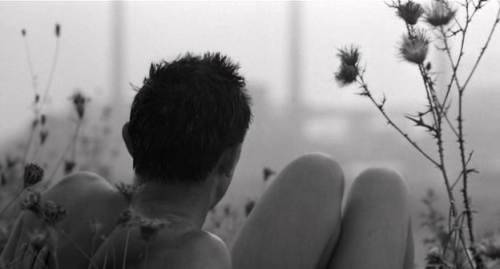
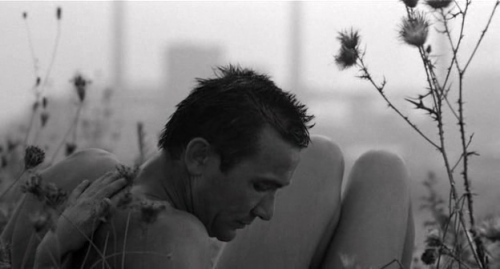
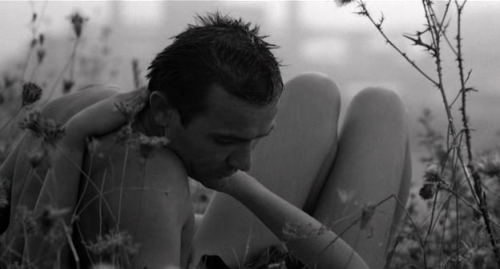
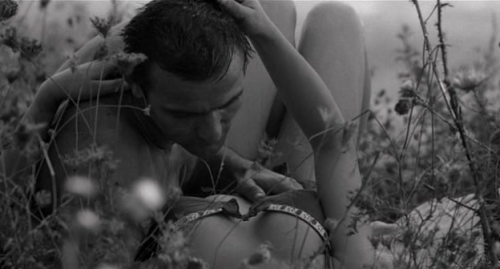
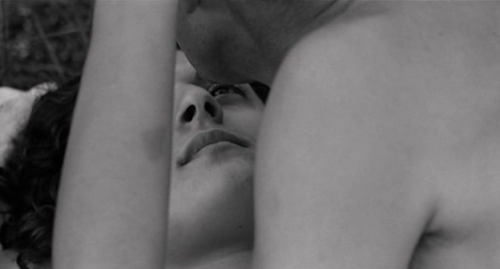

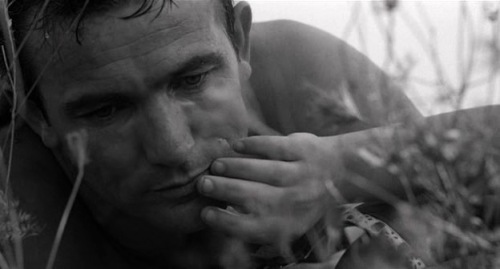
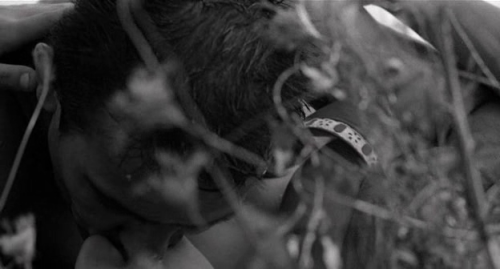
I fidanzati (Ermanno Olmi, 1963)


Please share. DM me if you need direct links to anything. My commissions are also open, I can give a discount on those if needed.
5/24/2022

Roy DeCarava, Woman walking above, New York, 1950
EVA FERRI: You insist on the centrality of the writing, you called it a chain that pulls up water from the bottom of a well. What are the features of your approach to writing?
ELENA FERRANTE: I work well when I can start from a flat, dry tone, that of a strong, lucid, educated woman, like the middle-class women who are our contemporaries. At the beginning I need curtness, terse, clear formulas that are free of affectations and demonstrations of beautiful form. Only when the story begins to emerge with assurance, thanks to that initial tone, do I begin to wait with trepidation for the moment when I will be able to replace the series of well oiled, noiseless links with a rusty, rasping series of links and a pace that is disjointed, agitated, increasing the risk of absolute collapse. The moment I change register for the first time is both exciting and anguished. I very much enjoy breaking through my character’s armor of good education and good manners, upsetting the image she has of herself, undermining her determination, and revealing another, rougher soul; I make her raucous, perhaps crude. I work hard to make the fracture between the two tonalities surprising and also to make the re-entry into the tranquil narration happen naturally. While the fracture comes easily—I wait for that moment, and slip inside it with satisfaction—I very much fear the moment when the narrative has to compose itself again. I’m afraid that the narrating “I” won’t be able to calm down. But above all, now the readers know her calm is false, that is won’t last, that the narrative orderliness will break up again.
— Elena Ferrante, Frantumaglia, 2016
-
 tin-omen liked this · 2 months ago
tin-omen liked this · 2 months ago -
 alexaviolet2 liked this · 4 months ago
alexaviolet2 liked this · 4 months ago -
 heat-and-hot-water liked this · 8 months ago
heat-and-hot-water liked this · 8 months ago -
 hope-is-on-the-horizon reblogged this · 8 months ago
hope-is-on-the-horizon reblogged this · 8 months ago -
 noiredesire liked this · 8 months ago
noiredesire liked this · 8 months ago -
 studiochiaroscuro liked this · 8 months ago
studiochiaroscuro liked this · 8 months ago -
 dimitrinaangelova9494 reblogged this · 8 months ago
dimitrinaangelova9494 reblogged this · 8 months ago -
 ease-out-the-clutch liked this · 8 months ago
ease-out-the-clutch liked this · 8 months ago -
 mybig10puttinthepounddown liked this · 8 months ago
mybig10puttinthepounddown liked this · 8 months ago -
 sorgenlos reblogged this · 8 months ago
sorgenlos reblogged this · 8 months ago -
 sorgenlos liked this · 8 months ago
sorgenlos liked this · 8 months ago -
 papillondusoir reblogged this · 8 months ago
papillondusoir reblogged this · 8 months ago -
 schneidersix liked this · 10 months ago
schneidersix liked this · 10 months ago -
 b-for-blue liked this · 10 months ago
b-for-blue liked this · 10 months ago -
 nochnicht reblogged this · 10 months ago
nochnicht reblogged this · 10 months ago -
 murellbijmien reblogged this · 10 months ago
murellbijmien reblogged this · 10 months ago -
 murellbijmien liked this · 10 months ago
murellbijmien liked this · 10 months ago -
 nonamewhiteee liked this · 10 months ago
nonamewhiteee liked this · 10 months ago -
 theunbearablelightnessofbein liked this · 10 months ago
theunbearablelightnessofbein liked this · 10 months ago -
 forgottenbones liked this · 10 months ago
forgottenbones liked this · 10 months ago -
 iperbole1974 reblogged this · 10 months ago
iperbole1974 reblogged this · 10 months ago -
 iperbole1974 liked this · 10 months ago
iperbole1974 liked this · 10 months ago -
 vpervaffanculo reblogged this · 10 months ago
vpervaffanculo reblogged this · 10 months ago -
 vpervaffanculo liked this · 10 months ago
vpervaffanculo liked this · 10 months ago -
 lavenous liked this · 1 year ago
lavenous liked this · 1 year ago -
 ldr-lil2 liked this · 1 year ago
ldr-lil2 liked this · 1 year ago -
 burratina liked this · 1 year ago
burratina liked this · 1 year ago -
 batman309 liked this · 1 year ago
batman309 liked this · 1 year ago -
 singhsinghsworld liked this · 1 year ago
singhsinghsworld liked this · 1 year ago -
 voulezvousblog reblogged this · 1 year ago
voulezvousblog reblogged this · 1 year ago -
 artkate liked this · 1 year ago
artkate liked this · 1 year ago -
 ikeepyouinmylocket liked this · 1 year ago
ikeepyouinmylocket liked this · 1 year ago -
 stormsssandsaints reblogged this · 1 year ago
stormsssandsaints reblogged this · 1 year ago -
 biche4dalle liked this · 1 year ago
biche4dalle liked this · 1 year ago -
 rotten134340 reblogged this · 1 year ago
rotten134340 reblogged this · 1 year ago -
 crueldesire liked this · 1 year ago
crueldesire liked this · 1 year ago -
 sternkatze liked this · 1 year ago
sternkatze liked this · 1 year ago -
 mademoisellegush reblogged this · 1 year ago
mademoisellegush reblogged this · 1 year ago -
 masodolly reblogged this · 1 year ago
masodolly reblogged this · 1 year ago -
 sowhatifiliveinasmalltowninjapan liked this · 1 year ago
sowhatifiliveinasmalltowninjapan liked this · 1 year ago

